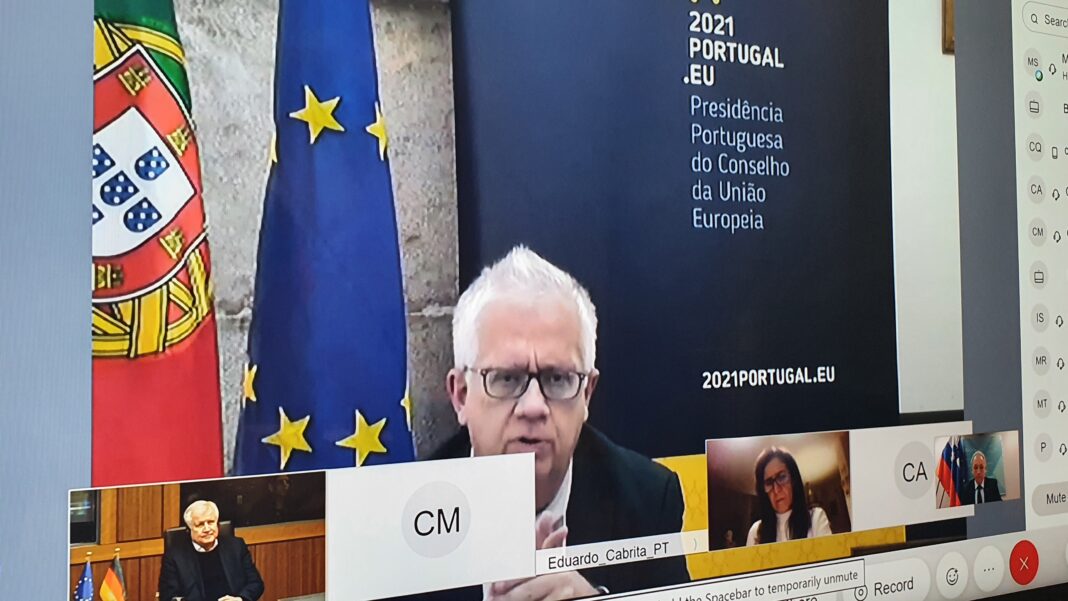By: gov.si
Today, Minister of the Interior Aleš Hojs participated in a video conference meeting of Ministers for Home Affairs of the Germany-Portugal-Slovenia Trio Presidency, hosted by his Portuguese counterpart Eduardo Cabrita, currently presiding over the Justice and Home Affairs Council.
This virtual meeting of the Ministers was held as a continuation of the exchange of views within the Trio Presidency, this time just before the informal Justice and Home Affairs Council meeting takes place on Thursday, 28th January 2021. In their discussions today, Ministers focused on the new Pact on Migration and Asylum.
In its 18-month Presidency programme, the Trio agreed upon the priority to be given to the legislation acts in the framework of the new Pact on Migration and Asylum.
Under the German Presidency #EU2020DE the EU Member States were able to reach a common understanding on majority of the issues at stake, particularily on the importance of the external dimension of migration and the necessity for enhancing the cooperation with the countries of origin as well as the transit countries. Portuguese Minister, who met with representatives of several EU Member States in this past month, reported on the outcomes of these meetings and presented the agenda for the forthcoming meeting of the Home Affairs Ministers.
Under the Portuguese presidency the discussions within the Working Groups of the Council on the Pact’s legislative proposals have only been further intensifying, with the main aim of the Presidency being to reach a common ground between the Member States by the end of June, particularily on several key issues within the Regulation on Asylum and Migration Management and the Asylum Procedures Regulation.
Minister of Interior Aleš Hojs expressed support for the Portuguese’s efforts to move forward on the legislative acts, and agreed with the proposed agenda for the upcoming meeting, which foresees a discussion on the next steps in addressing the most outstanding issues, such as the issue of solidarity between the Member States and the obligation to carry out procedures at the EU’s external borders.
As Minister Hojs stated, the Member States should aim for a more imaginative and attractive approach when it comes to establishing the appropriate balance between responsibility and solidarity, an approach which would meet the actual needs. According to him, the countries of first entry certainly take on the greatest part of the so-called migration burden, nevertheless, when setting out the commitments based on the principle of solidarity, it is of outmost importance to also take into the consideration the severity of migration situation in the member states, that are not necessarily countries of first entry.
Slovenia is advocating for flexible solidarity, a concept which has not yet been agreed upon within the Council of the EU. Furthermore, there is a clear necessity to strengthen cooperation with countries of origin and transit, with the need for European Commission and the EU external service to take on a much more significant role in this regard. The procedures at the EU’s external border also remain extremely important especially in terms of distinguishing between persons in need of international protection and those persons who must be returned.
In their conclusions, the Ministers acknowledged that much work and political will would still be needed in the upcoming months, in order to make concrete progress towards a common EU migration policy.

